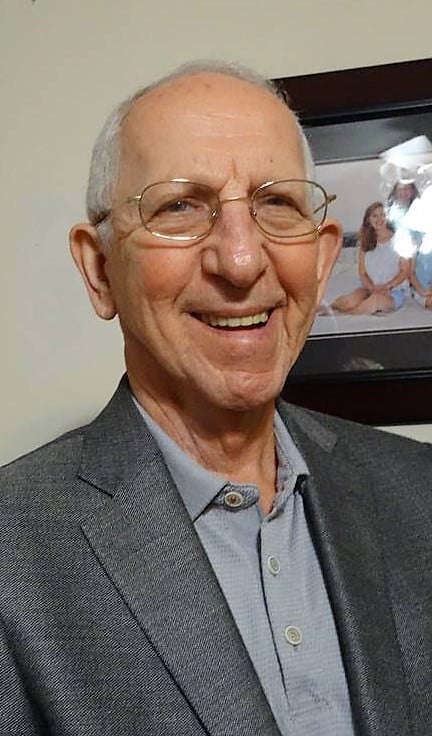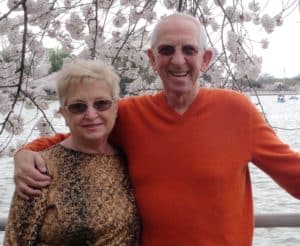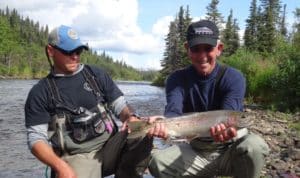Don “Fight’s on”

I am wonderfully blessed. I have a beautiful, loving wife of 47-years, two tax-paying productive children and their spouses, three brilliant and beautiful granddaughters, and am a long-term head and neck cancer survivor!
This time 11 years ago, I was beginning seven weeks of twice weekly chemo (Cisplatin and Docetaxol) and daily radiation treatments (a cumulative 70 grey, using Intensity Modulated Radiation Therapy) for squamous cell carcinoma at the base of tongue. I had awoken around Christmas, about four months earlier, with what I thought was a sore and swollen lymph node in the neck. That lymph node turned out to be a tumor and, surprisingly, it had a twin hidden on the other side of my neck. The primary tumor was at the left base of my tongue.
As anyone who has had a head-and-neck cancer very likely will tell you, cancer categorized as “head and neck” does not get the attention that it should. While not in the category of “most common” cancers, it is among the most debilitating and deadly. Head and Neck Cancers are often very difficult to detect and to diagnose. That is why it is almost always advanced—either Stage 3 or Stage 4—when diagnosed. Mine was Stage 4.
To illustrate how deceptive head and neck cancers can be, the morning that I awoke with the soreness in the neck was the only time I had any soreness at all. The “swollen node” was there the next day, but the soreness was gone. If I had ignored and not followed up on what caused the soreness, I am pretty certain I would not be sitting at my computer this evening writing this article for your perusal. Even after immediately beginning to pursue the cause of that sore and swollen lymph node, it still took three months to get a diagnosis.

Head and Neck Cancers are described as “insidious,” and are, in the opinion of many medical professionals, among the most painful of any cancers to treat. To help me prepare for the onslaught, I asked my doctors to give me the worst case scenario regarding the effects of the chemo and radiation, and they did. When Dr. Andrea McMurphy, my ENT, gave me the cancer diagnosis, she had told me the treatment would be extremely painful and that my mouth would be “bloody and raw.” Whereas, my Radiation Oncologist, Dr. Joseph Bonnano, told me, “There will be some pain and burning”, my Chemo Oncologist, Dr. Robert Prieto, pulled no punches. He told me, “The pain will be so bad you won’t want to swallow a tear. The pain will also be so bad morphine won’t kill it.” With that knowledge, I approached treatment with trepidation.
While I experienced the expected effects to a degree, the full brunt of what my doctors told me to expect never materialized. In fact, the effects I experienced were so minimal that every doctor who touched me during my treatment considered me to be an anomaly. Dr. Bonnano half-jokingly told me he was going to make me the poster child for the 21st Century Oncology clinic.
Unlike other head and neck cancer patients I have come into contact with, I came through treatment and recovery relatively unscathed. Were it not for two “hot spots” showing up on the PET/CT I received after completing treatment, and the subsequent lymph node dissection on the right side of my neck, you would never know anything had been amiss. Over time, saliva production is pretty normal. Thus, no dry mouth. Taste buds are restored. No oral health problems exist and I can open my mouth wide enough to put three fingers vertically into it. As I sat in our cancer support group, which was comprised of mostly head and neck cancer patients, I could not help but reflect on how I came through with so few problems and lingering effects, while others suffered so horribly. I almost had guilt feelings.
Those same thoughts were again pondered as I attended the funerals of Marv, Amy, Kirk and others who passed either because all of their cancer was not destroyed during treatment, or whose cancer could not be completely excised during surgery, or who had a recurrence of their cancer. One of whom had a recurrence just after passing the five-year mark.

To those who asked me the question regarding how I fared so well when others suffered so much and eventually died, the response I offered was, “Good doctors. Good medicine. The good Lord. Not necessarily in that order.”
While undergoing cancer treatment, I chronicled my experience by sending e-mail notes, initially, to a small group of family and friends. My initial intimate sharing mushroomed, because many of them, in turn, shared those notes far-and-wide. What started out as a small number, ultimately resulted in an e-mail list of approximately 250 people receiving my cancer updates. Several who received my updates told me, “Don, you have a story to tell. I hope you will write a book about your experience and include your e-mail updates!”
I had two goals in mind when I was writing those periodic updates. Those goals were: (1) to encourage people to pray for me and; (2) to force myself to confront my cancer and its treatment head-on. While going through treatment, there was never the first thought of writing a book. However, the seed had been sown and it eventually took root.
About five years after completing treatment, I compiled a manuscript with those e-mail updates as the basis. I also included several of the e-mails I received in response to those updates, along with my reply, to enable the reader to see a bit more of what was going on behind the scene. I also used this as an opportunity to add additional detail where appropriate.

After my editor returned the manuscript, I looked at the amount of work required to finish it, and promptly put the manuscript in a drawer. It remained there for considerable time. Last spring I retrieved the manuscript, finished it and then self-published the book on Amazon. It was extremely well reviewed—35/36 Amazon reader reviews were 5-Star. The other was 4-Star.
Just as there were two goals in sending out those periodic updates, there were two goals which motivated me to write the book: (1) to share my personal story and the power of prayer; and (2) to focus attention on this hideous disease called “Head-and-Neck Cancer”. The latter goal is partially achieved simply through the book’s title: Head-and-Neck Cancer Kills….”Fight’s On!!!”
The book is no longer available on Amazon. I recently signed a publishing contract with Christian Faith Publishing and the book is being edited to conform to the publisher’s standards. I am told it will take 4-6 months to complete the publishing process. (If you wish to know when Head-and-Neck Cancer Kills….”Fight’s On!!!” becomes available, please e-mail me at sublettd@gmail.com and make the subject “Book Availability”. I will be glad to contact you!)
Since completing treatment, my doctors have occasionally asked me to mentor and share my personal story with a significant number of head and neck cancer patients, helping to gird them for the battle they would experience—as well as to show them that it is possible to beat this disease and live a normal life. Even if it is a “new normal”, because no one who battles any Stage 4 cancer will ever revert to the “normal” that existed prior to their cancer battle. I have also had opportunity to speak to different audiences about my cancer experience. Because of my outspokenness about knowing our body, paying attention when there are changes, and getting those changes checked by a doctor, I have been able to help focus attention on cancer awareness, especially on cancers of the head and neck.

I recently received a dose of my own medicine regarding paying attention to any change in the body and getting it checked. I was having a “hanging sensation” in the back of my throat. I am all too aware that a hanging sensation is one of the signs of a potential head and neck cancer. Believe me, I did not want to make the ENT appointment to be scoped! However, after much mental wrangling, I made the appointment and went for the exam. “Everything looks normal” is a marvelous phrase. However, I will continue to be alert to changes within my body. You should, too!
Several years ago, I was told by a friend who succumbed to throat cancer, “Don, once a cancer patient, always a cancer patient.” What my friend, Steve, told me has considerable merit, because there is constant awareness in the cancer patient of just how much havoc cancer can wreak and how fragile life is.
Every day is a genuine blessing!
